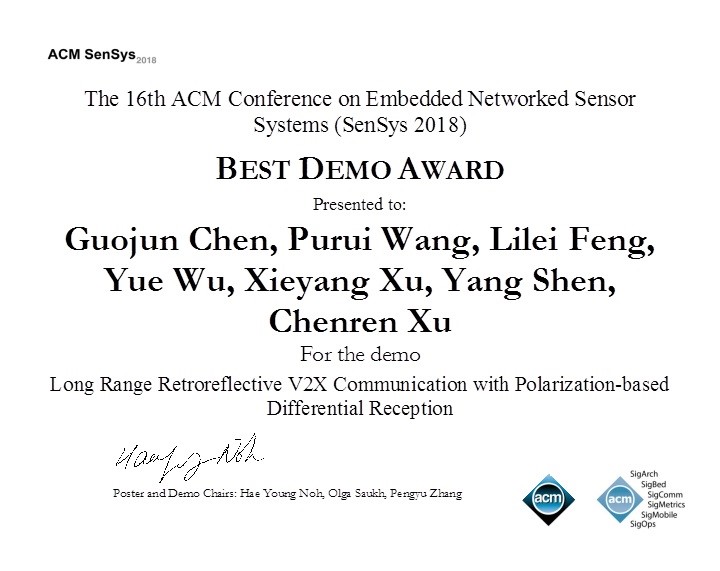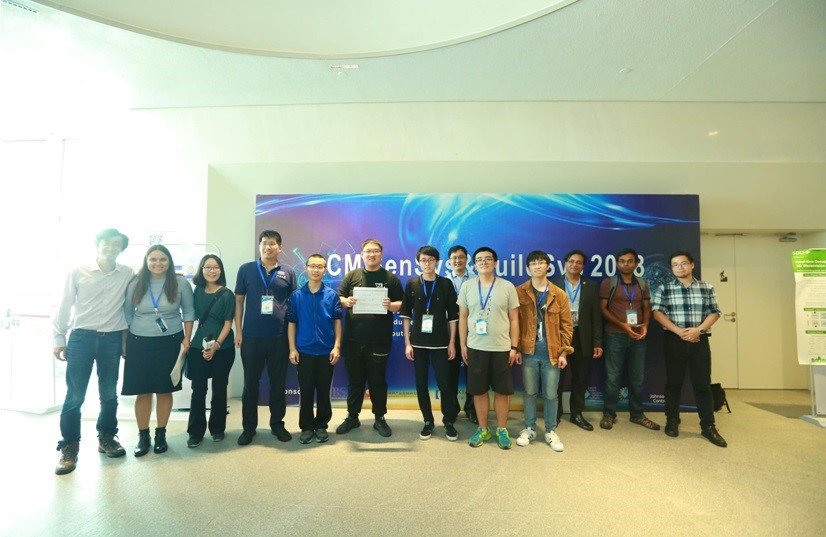Recently, at the 16th ACM Conference on Embedded Networked Sensor Systems (ACM SenSys 2018), the Prof. Chenren Xu’s Research Group won the "Best Demo Award" for their paper "Long-range retroreflective V2X communication with polarization-based differential reception". The first author is Mr. Guojun Chen, a senior-year undergraduate student in the School of EECS, Peking University.
Based on the novel vehicle-path cooperation technology of visible light backscatter communication mechanism, this paper proposes a receiving device using polarization differential to improve the signal-to-noise ratio of the reverse link. The prototype system experiment results show that the constant communication distance of this asymmetric link is increased by 22%, and the farthest is nearly 90 meters. This technology can be widely used in the dynamic information transmission between vehicles and objects with retroreflective characteristics on the road (such as road signs, license plates, rear reflective stickers, etc.), providing a new solution for vehicle coordination.
Other authors also come from the School of EECS, including Purui Wang (junior-year undergraduate), Lilei Feng (fresh master student), Yue Wu (junior-year undergraduate), Xieyang Xu (senior-year undergraduate), and Yang Shen (class of 2018 undergraduate).
Related links: ACM SenSys is the most influential international conference in the sensor network and IoT domain, addressing all aspects of sensor intelligence systems, including wireless communications and networking, embedded systems and hardware, energy harvesting and management, and Distributed Systems and algorithms, etc.; only 20 articles are included each year. The essay rate for this conference was 15.6%. The accepted items were from the University of California at Berkeley, Stanford University, Carnegie Mellon University, University of California, Los Angeles, the University of Illinois at Urbana-Champaign, Oxford University, University of Washington, and Microsoft Research Institute. Wait.

